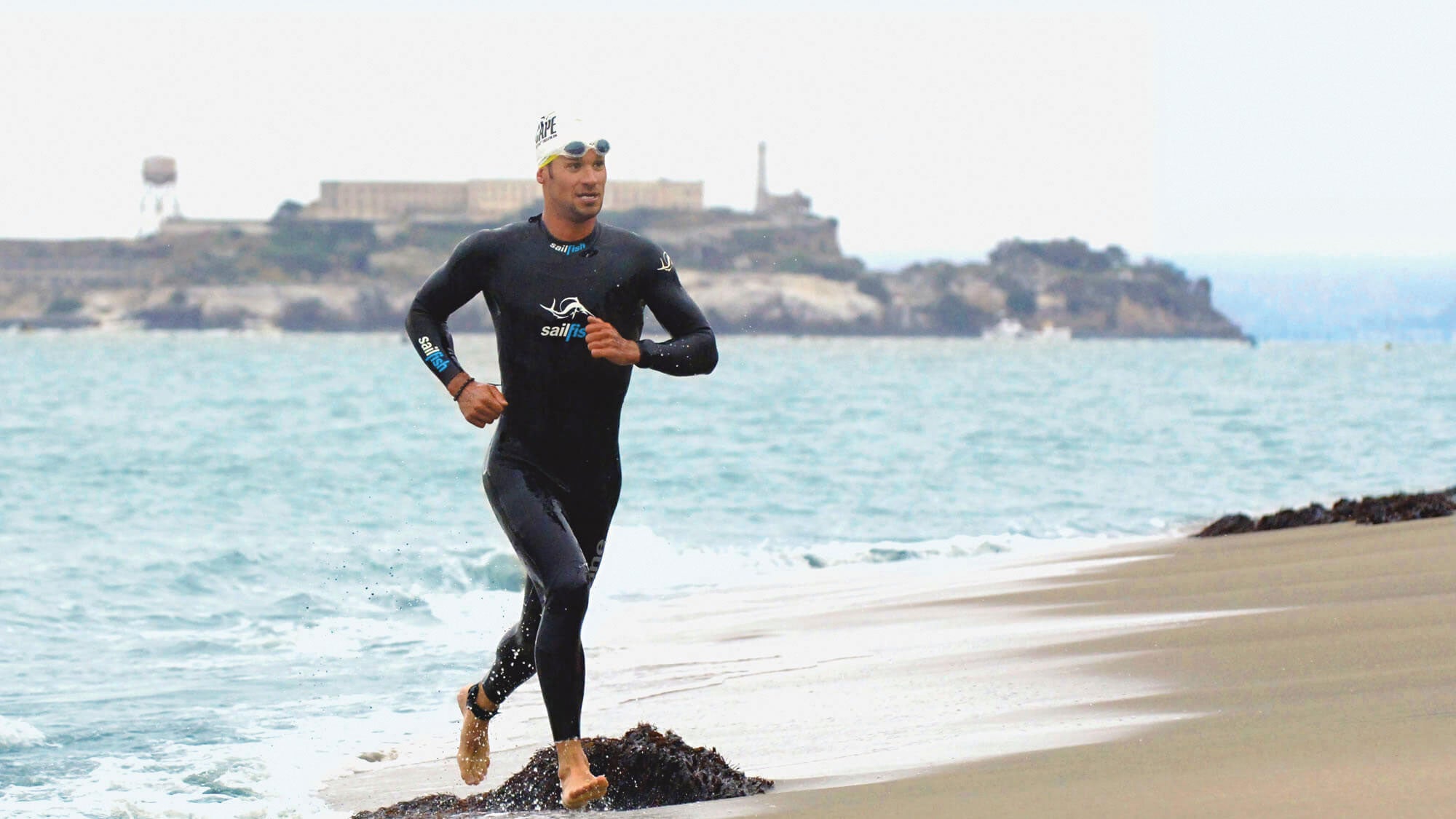Jan Sibbersen: Meet the Kona Swim Course Record Holder

Photo courtesy of SailFish.
Imagine exiting the swim at your next triathlon, getting to T1, and seeing no one except rows completely stuffed with bikes, surprised volunteers, and nothing but miles of open roads ahead with not a soul to ride or run after. This post-apocalyptic dream was exactly the scene Jan Sibbersen saw in all but two of his nearly 100 tri starts. While Sibbersen may not be as a familiar name for his pro finishes, his legendary swims still dot triathlon’s record books. As a ten-year veteran of the German national swim team, Sibbersen found a passion for triathlon during the 2001 St. Croix half-Ironman where he finished as the second age grouper, despite miscalculating the effects of a night of partying two evenings before the race. For the rest of the field from then on, it was a matter of when (or if) they would pass him.
“Jan has showed up in the tri scene as a swimmer,” says eight-time top-10 Kona finisher Jürgen Zäck. “We knew we would catch him sooner or later. But that moment was later and later year by year. We were all lucky he started the sport late.”
Sibbersen got better at the other two legs, and his results improved, finishing in the 9:00- to 9:30-range for the iron distance in the mid-’00s. Meanwhile his lead out of the water changed race the dynamics drastically—not unlike today’s superswimmers like Lucy Charles-Barclay and Josh Amberger.
“Essentially I raced two kinds of races,” Sibbersen says. “Races I could win in the end and races I knew I was never going to win beforehand. Races I wanted to win, I did not think about the first out of water, it was just pure stress not getting caught until the finish line. The other races, such as Kona, they were a blast. You’re riding on the highway, helicopters around you, motorbikes and TV cameras everywhere, the adrenaline rush is just beyond belief.”
As the years went on, Sibbersen began to spread his sphere of swimming influence by continuing to make a name for himself as the perennial “first out” and later by creating his own wetsuit line, Sailfish.
And yet with all of his post-professional triathlete success, Sibbersen always returned to Kona for that special thrill of being first out on the big island. His quest to be the fastest ever saw him come achingly close to the nearly impossible overall swim course record that stood for nearly 20 years.
Notoriously fickle conditions in the water saw him miss out in his five attempts between 2001 and 2004 and then again in 2017. But in 2018, Sibbersen finally cemented his legendary status into the crystal-clear waters of the Kailua Bay by swimming 46:29—a record that will likely stand for another few decades.
“Jan kept always dreaming about this record,” says reigning Ironman world champion and Kona overall course record holder Patrick Lange, who is also managed by Sibbersen. “The swim record was exceptional because he was doing it not as a pro, he was doing it with 40-plus years of age with a full-time job as a manager and owner of a company at the same time. That’s what dreams are made of.” “It’s the only ‘world’ record that was within my reach and my abilities as a former swimmer,” says Sibbersen of his new Kona swim course mark. “And when you have a strong feeling you could potentially own the swim record of the most famous triathlon race on Earth, it’s a dream that does not go away overnight.”
Being at the front of the most-watched triathlon in the world is something both Sibbersen and his charge Lange likely both dream about. “There’s a saying that in Kona the energy is with the lead,” Sibbersen says, “and I can tell you that this is true for sure.”